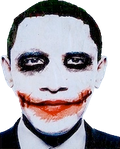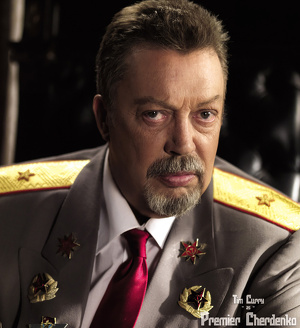Original Link: https://www.newyorker.com/magazine/2023/08/28/elon-musks-shadow-rule
Will post highlights in comment but whole article's worth reading.
Last October, Colin Kahl, then the Under-Secretary of Defense for Policy at the Pentagon, sat in a hotel in Paris and prepared to make a call to avert disaster in Ukraine. A staffer handed him an iPhone—in part to avoid inviting an onslaught of late-night texts and colorful emojis on Kahl’s own phone. Kahl had returned to his room, with its heavy drapery and distant view of the Eiffel Tower, after a day of meetings with officials from the United Kingdom, France, and Germany. A senior defense official told me that Kahl was surprised by whom he was about to contact: “He was, like, ‘Why am I calling Elon Musk?’”
The reason soon became apparent. “Even though Musk is not technically a diplomat or statesman, I felt it was important to treat him as such, given the influence he had on this issue,” Kahl told me. SpaceX, Musk’s space-exploration company, had for months been providing Internet access across Ukraine, allowing the country’s forces to plan attacks and to defend themselves. But, in recent days, the forces had found their connectivity severed as they entered territory contested by Russia. More alarmingly, SpaceX had recently given the Pentagon an ultimatum: if it didn’t assume the cost of providing service in Ukraine, which the company calculated at some four hundred million dollars annually, it would cut off access. “We started to get a little panicked,” the senior defense official, one of four who described the standoff to me, recalled. Musk “could turn it off at any given moment. And that would have real operational impact for the Ukrainians.”
[...]
The senior defense official said, “We had a whole series of meetings internal to the department to try to figure out what we could do about this.” Musk’s singular role presented unfamiliar challenges, as did the government’s role as intermediary. “It wasn’t like we could hold him in breach of contract or something,” the official continued. The Pentagon would need to reach a contractual arrangement with SpaceX so that, at the very least, Musk “couldn’t wake up one morning and just decide, like, he didn’t want to do this anymore.” Kahl added, “It was kind of a way for us to lock in services across Ukraine. It could at least prevent Musk from turning off the switch altogether.”
By then, Musk’s sympathies appeared to be manifesting on the battlefield. One day, Ukrainian forces advancing into contested areas in the south found themselves suddenly unable to communicate. “We were very close to the front line,” Mykola, the signal-corps soldier, told me. “We crossed this border and the Starlink stopped working.” The consequences were immediate. “Communications became dead, units were isolated. When you’re on offense, especially for commanders, you need a constant stream of information from battalions. Commanders had to drive to the battlefield to be in radio range, risking themselves,” Mykola said. “It was chaos.” Ukrainian expats who had raised funds for the Starlink units began receiving frantic calls. The tech executive recalls a Ukrainian military official telling him, “We need Elon now.” “How now?” he replied. “Like fucking now,” the official said. “People are dying.” Another Ukrainian involved told me that he was “awoken by a dozen calls saying they’d lost connectivity and had to retreat.” The Financial Times reported that outages affected units in Kherson, Zaporizhzhia, Kharkiv, Donetsk, and Luhansk. American and Ukrainian officials told me they believed that SpaceX had cut the connectivity via geofencing, cordoning off areas of access.
Typically, such a negotiation would be handled by the Pentagon’s acquisitions department. But Musk had become more than just a vender like Boeing, Lockheed, or other defense-industry behemoths. On the phone with Musk from Paris, Kahl was deferential. According to unclassified talking points for the call, he thanked Musk for his efforts in Ukraine, acknowledged the steep costs he’d incurred, and pleaded for even a few weeks to devise a contract. “If you cut this off, it doesn’t end the war,” Kahl recalled telling Musk.
Musk wasn’t immediately convinced. “My inference was that he was getting nervous that Starlink’s involvement was increasingly seen in Russia as enabling the Ukrainian war effort, and was looking for a way to placate Russian concerns,” Kahl told me. To the dismay of Pentagon officials, Musk volunteered that he had spoken with Putin personally. Another individual told me that Musk had made the same assertion in the weeks before he tweeted his pro-Russia peace plan, and had said that his consultations with the Kremlin were regular. (Musk later denied having spoken with Putin about Ukraine.) On the phone, Musk said that he was looking at his laptop and could see “the entire war unfolding” through a map of Starlink activity. “This was, like, three minutes before he said, ‘Well, I had this great conversation with Putin,’ ” the senior defense official told me. “And we were, like, ‘Oh, dear, this is not good.’ ” Musk told Kahl that the vivid illustration of how technology he had designed for peaceful ends was being used to wage war gave him pause.

After a fifteen-minute call, Musk agreed to give the Pentagon more time. He also, after public blowback and with evident annoyance, walked back his threats to cut off service. “The hell with it,” he tweeted. “Even though Starlink is still losing money & other companies are getting billions of taxpayer $, we’ll just keep funding Ukraine govt for free.” This June, the Department of Defense announced that it had reached a deal with SpaceX.

[...]
Perhaps the most revealing moment in the PayPal saga happened at its outset. In March, 2000, as the merger was under way, Musk was driving his new McLaren, with Thiel in the passenger seat. The two were on Sand Hill Road, an artery that cuts through Silicon Valley. Thiel asked Musk, “So what can this do?” Musk replied, “Watch this,” then floored the gas pedal, hit an embankment, and sent the car airborne and spinning before it slammed back onto the pavement, blowing out its suspension and its windows. “This isn’t insured,” Musk told Thiel. Musk’s critics have used the story to illustrate his reckless showboating, but it also underscores how often Musk has been rewarded for that behavior: he repaired the McLaren, drove it for several more years, then reportedly sold it at a profit. Musk delights in telling the story, lingering on the risk to his life. In one interview, asked whether there were parallels with his approach to building companies, Musk said, “I hope not.” Appearing to consider the idea, he added, “Watch this. Yeah, that could be awkward with a rocket launch.”
He had the opportunity to do the coolest thing ever and kill himself & Thiel in a McLaren and fumbled it!!!!

[...]
In early 2022, Steven Cliff, then the deputy administrator of the Department of Transportation’s National Highway Traffic Safety Administration, learned that potentially tens of thousands of Tesla vehicles had a feature that he found concerning. For years, Tesla has been working to create a totally self-driving car, a long-standing ambition of Musk’s. Now Cliff was told that a version of Tesla’s Full Self-Driving software, an experimental feature that lets the cars navigate with little intervention from a driver, permitted cars to roll through stop signs, at up to about six miles an hour. This was clearly illegal. Cliff’s enforcement team contacted Tesla, and, in several meetings, a surprising conversation about safety and artificial intelligence played out. Representatives for Tesla seemed confused. Their response, as Cliff recalled, was “That’s what humans do all the time. Show us the data, why it’s unsafe.” N.H.T.S.A. officials told Tesla that, regardless of human compliance, “you should not be able to program a computer to break the law for you.” They demanded that Tesla update all the affected cars, removing the feature—a recall, in industry terms, albeit a digital one. “There was a lot of back-and-forth,” Cliff told me. “Like, at midnight on the very last day, they blinked and ended up recalling the rolling-stop feature.” (Tesla did not respond to requests for comment.)

this is the world liberals wanted all along, and even they themselves do not like it. reap what you sow removed!

